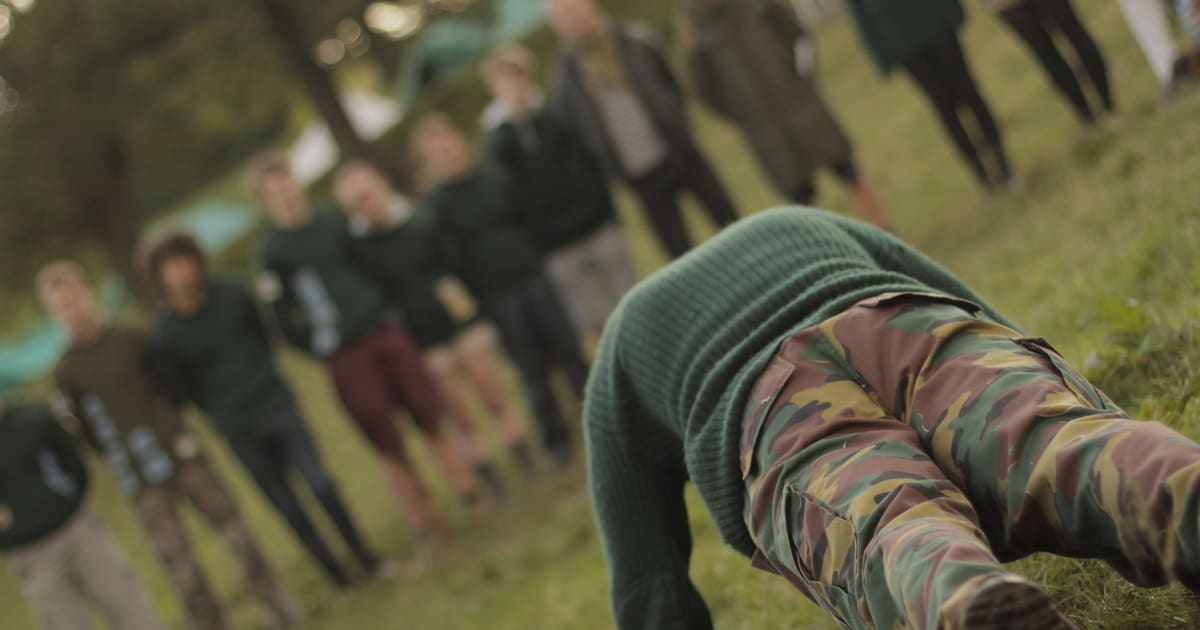A few years ago, the “hundred pushup challenge” began to trend online. At a time when gyms were opening on every corner and roping people into increasingly expensive and complicated workouts, there was a call to the simplicity of the pushup. Those who could rattle off 100 were proving they had a solid baseline of strength, endurance, and health. As I read about these challenges, it occurred that I had never really done any pushups. For some reason, they were not a part of my childhood gym classes or my summertime organized sports. So I dropped to the floor and did 10 or 12 before collapsing in a heap. I realized I was a long way from 100 and, according to that measure, a long way from health. I decided I’d try again the next day to see if I could improve to 15 or 20.
But if you’ve ever tried a challenge like this, you probably know what happened. About 12 hours later I began to feel some discomfort in my arms and chest. Twelve hours after that, I could barely lift my arms, not to mention use them for pushups. It turns out that it had been a long, long time since I had seriously exercised those muscles and they were reacting to the very sudden and very heavy loads I had placed on them. It took three or four days for me to begin to feel better and to be able to advance to 15 pushups, then 20, and eventually 50 or 100. I had to work the muscles over time so I could gradually improve their strength and endurance.
I’m sure you’ll breathe a sigh of relief when you learn that this article isn’t actually about working out—pretty much the most boring topic to read about on blogs or social media. My purpose in telling that story is to begin to build a metaphor, a point of comparison.
I spend a fair bit of my time interacting with teens and young adults, some of whom are my children, some of whom are friends, and some of whom are fellow church members or people I’m mentoring. As I express interest in them, talk with them, attempt to speak wisdom to them, and inquire how I can pray for them, I often hear them lament the difficulties of their lives. They are overwhelmed by the responsibilities of high school and a part-time job. They are worried about breaking down in the face of the three or four final exams that are coming up. They have been asked to complete a project on what they consider a tight deadline and can’t see how they’ll ever get it done. They feel like they’ve been pushed to the breaking point and are near collapse.
I look at their lives, I hear their fears and sorrows, and I can’t help but believe they are being a little melodramatic. It’s easy to laugh off their lamentations as little more than whining. After all, with that era of life now well in my rearview mirror, I know what they don’t. I know that in all likelihood these high school years are going to prove the easiest of their lives—they’ll never have more free time or less responsibility than they do now. I know that their college years may be a struggle, but that those struggles will only deepen when they are working full-time and repaying student debt on an entry-level salary (while getting accustomed to being married and while desperately trying to get a baby to sleep through the night). They’ll never have more time to waste or less personal accountability than they do right now. I know how easy they’ve got it compared to what’s awaiting them.
But I also know that they are only just starting out in the “hundred pushup challenge” of life. The man who can bang out 100 pushups while barely breaking a sweat may look at me straining to complete 15 and have a good laugh at my expense. He may roll his eyes when he hears me groan about the pain in my arms and chest. But that doesn’t make the strain or pain any less real. To the contrary, the strain and pain are necessary to build the strength and endurance. This may not give me license to whine, but it also doesn’t mean I can’t truly feel the pain and admit that it hurts.
And that’s how I try to relate to young people. I understand that so much of what they’re enduring now is “light and momentary” compared to what they’ll have to endure as life goes on and as their lives grow more difficult and more complex. But I also know I have no right to downplay it. What they are going through is real and painful. They’re not whining, but simply grappling with the uncomfortable realization that life is difficult and, as time passes, only gets more difficult. It’s wrong of me to make light of their little sorrows by comparing them to their future greater sorrows. It’s right of me to support them as they build the strength and endurance that will carry them into and through the trials to come.










